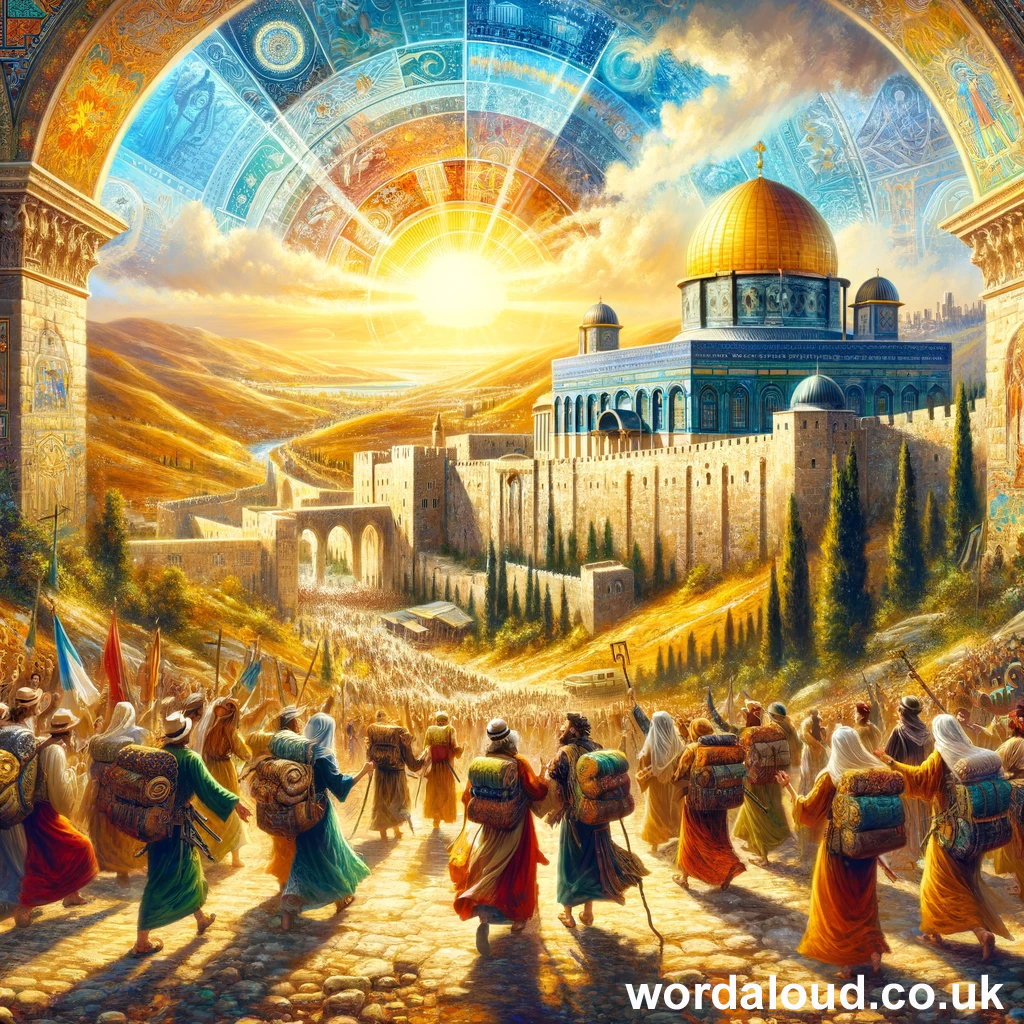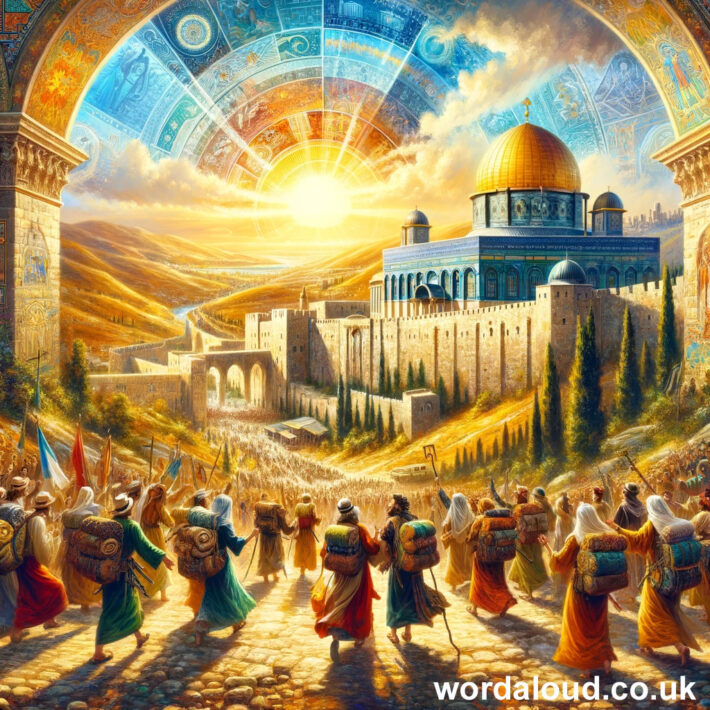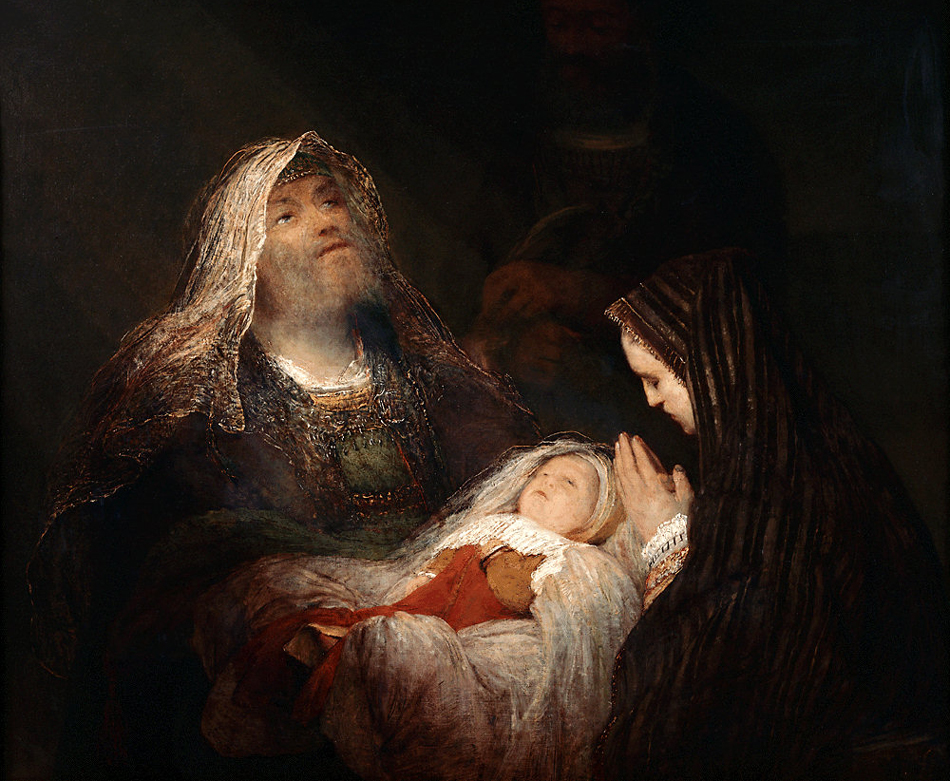Christian Art | Prayer With Jesus | Psalms | Song Of Praise – Prayer For Jerusalem | Song Of Ascents | King David As A Boy | Audio KJV | Love Revealed By Jesus | King James Audio Bible
Psalm 122 | King James Audio Bible
YouTube: Psalm 122 | KJV | King James Version | Audio Bible | Word Aloud
Psalm 122, part of the ‘Songs of Ascents’, holds a unique place in the biblical Psalms. Attributed to King David, this psalm captures the essence of pilgrimage and communal worship. The text reflects on Jerusalem, not only as a city but as a symbol of unity and divine presence.
The psalm begins, ‘I was glad when they said unto me, Let us go into the house of the LORD.’ This expression of joy sets the tone. The psalmist anticipates worship in the sacred space of Jerusalem’s temple. This line resonates universally, depicting the anticipation of approaching a sacred place.
The following verses, ‘Our feet shall stand within thy gates, O Jerusalem. Jerusalem is builded as a city that is compact together,’ convey reverence for Jerusalem. The city represents more than a geographical location; it embodies the heart of spiritual and communal life.
Verses 4 and 5 highlight Jerusalem’s role as a religious and judicial center. Reference to ‘thrones of judgment’ and ‘the house of David’ emphasizes the city’s significance in administering divine law and fulfillment of God’s promises.
The psalm shifts to a prayer for Jerusalem’s peace: ‘Pray for the peace of Jerusalem: they shall prosper that love thee.’ This call to prayer reflects the city’s history of conflict and the universal desire for its well-being. The individual’s well-being links to the fate of Jerusalem, suggesting a mystical bond between the city and its people.
The psalm continues, ‘Peace be within thy walls, and prosperity within thy palaces. For my brethren and companions’ sakes, I will now say, Peace be within thee.’ The repetition of ‘peace’ emphasizes importance. Concern extends beyond personal piety to the community’s well-being.
The final verse, ‘Because of the house of the LORD our God I will seek thy good,’ ties the psalmist’s commitment to Jerusalem to his devotion to the house of the Lord. The psalmist links the well-being of Jerusalem to the worship of God.
Theologically, Psalm 122 intertwines communal worship, the sacred space’s significance, and the pursuit of peace. Jerusalem emerges not just as a physical location but as a unity symbol, divine presence, and God’s promises’ fulfillment. The psalm reflects the ancient Jewish understanding of community worship, connecting individual and communal well-being to Jerusalem’s health and stability.
In liturgical traditions, Judaism includes Psalm 122 in Shabbat services, while Christianity often uses the psalm in liturgies focusing on pilgrimage, unity, and peace. The psalm’s appeal transcends its ancient context, aligning with contemporary desires for spiritual community and peace.

![]()
Psalm 122 | King James Audio Bible
I was glad when they said unto me, Let us go into the house of the LORD.
Our feet shall stand within thy gates, O Jerusalem.
Jerusalem is builded as a city that is compact together:
Whither the tribes go up, the tribes of the LORD, unto the testimony of Israel, to give thanks unto the name of the LORD.
For there are set thrones of judgment, the thrones of the house of David.
Pray for the peace of Jerusalem: they shall prosper that love thee.
Peace be within thy walls, and prosperity within thy palaces.
For my brethren and companions’ sakes, I will now say, Peace be within thee.
Because of the house of the LORD our God I will seek thy good.

![]()
Psalm 122 | King James Audio Bible
- Joy In Worship And Pilgrimage: Psalm 122 opens with an expression of joy at the prospect of going to Jerusalem’s temple. This reflects the deep spiritual satisfaction and anticipation associated with worship and pilgrimage.
- Jerusalem As A Symbol Of Unity And Divine Presence: The psalm highlights Jerusalem’s role as more than a city; it’s a unifying symbol of faith and God’s presence. The description of Jerusalem as compact and unified underscores its importance as a spiritual and communal center.
- Jerusalem As The Center Of Religious Life: The psalmist mentions the gathering of tribes in Jerusalem, emphasizing its significance as a religious hub. This gathering for worship and thanksgiving strengthens communal bonds and religious devotion.
- The City Of Justice And Davidic Promise: References to ‘thrones of judgment’ and ‘the house of David’ in Jerusalem emphasize the role of Jerusalem as a center of justice and the fulfillment of divine promises. The city represents both a historical and a prophetic fulfillment of God’s covenant with David.
- Prayers For Peace And Prosperity: The psalm contains a powerful call to pray for Jerusalem’s peace, linking the city’s well-being to that of its admirers. This theme reveals a deep-rooted desire for stability and prosperity within the holy city, seen as essential for the overall peace of the community.
![]()

Additional Commentary | External Resources | Psalm 122
David Guzik’s Study Guide for Psalm 122 on Blue Letter Bible: David Guzik offers a verse-by-verse analysis of Psalm 122. His commentary delves into its significance as a Song of Ascents, highlighting the historical and spiritual importance of Jerusalem and the Psalm’s relevance for worship and unity.
Enduring Word Bible Commentary Psalm 122: This commentary emphasizes the unity of the church and the importance of Jerusalem as a central place of worship. It provides insights into the Psalm’s relevance for Christian unity and the shared goal of praising God.
C. H. Spurgeon’s Commentary on Psalm 122: Spurgeon’s verse-by-verse exposition highlights the joy of worship and the significance of Jerusalem as both a physical and spiritual center, offering rich insights into the Psalm’s themes.
Matthew Henry’s Commentary on Psalm 122: Henry’s classic commentary provides a historical context, suggesting the Psalm was written by David to encourage appreciation of Jerusalem as the holy city. It breaks down the Psalm into sections discussing the joy of going to Jerusalem, the city’s esteem, and prayers for its welfare.








